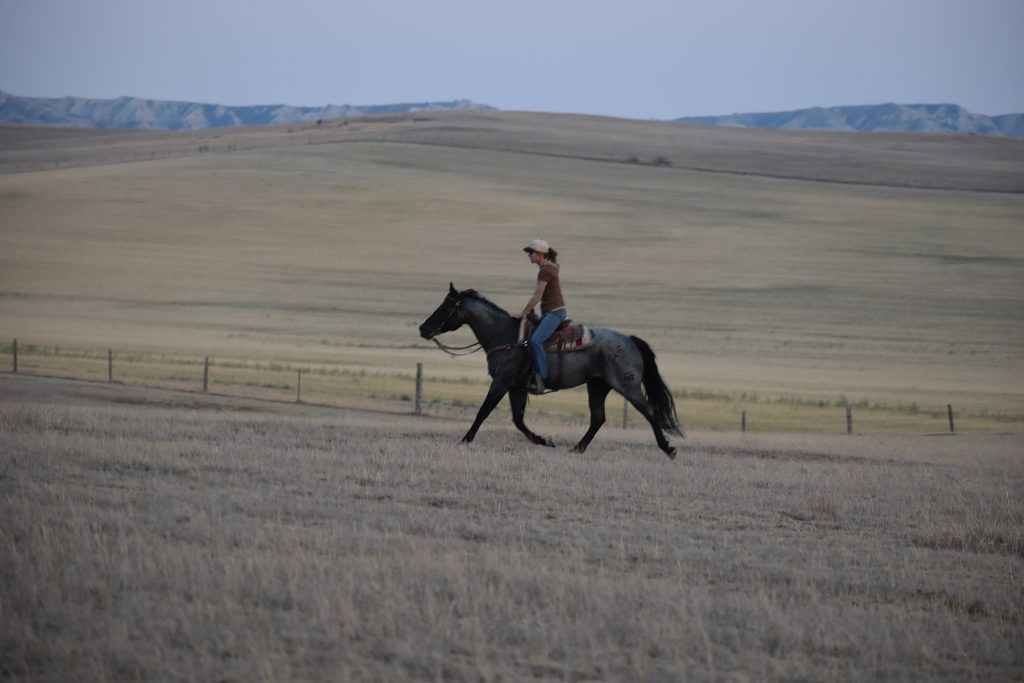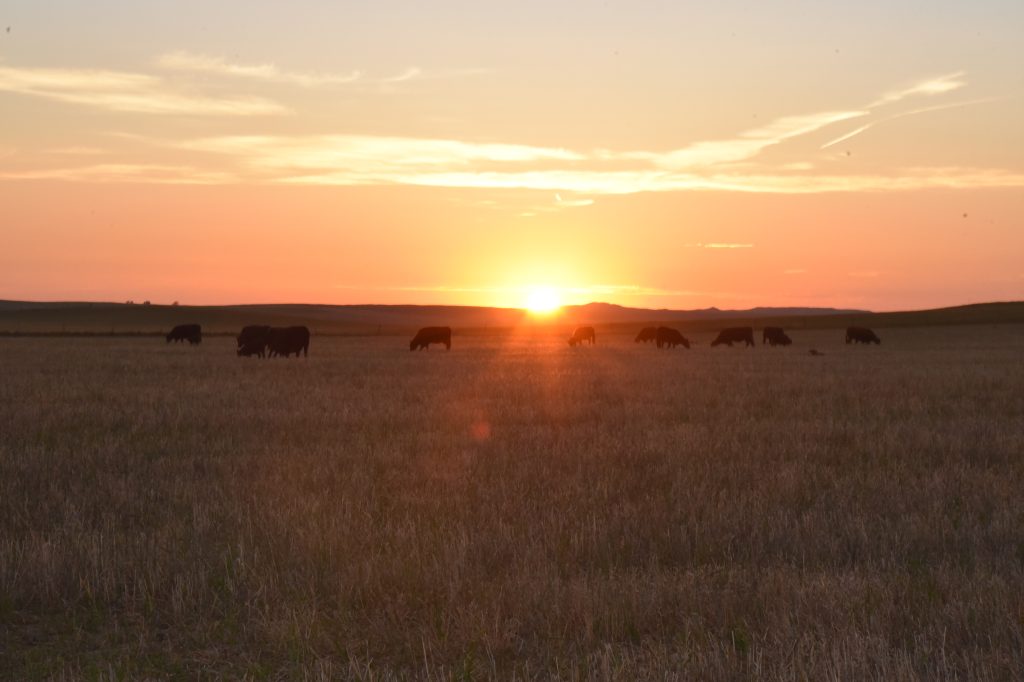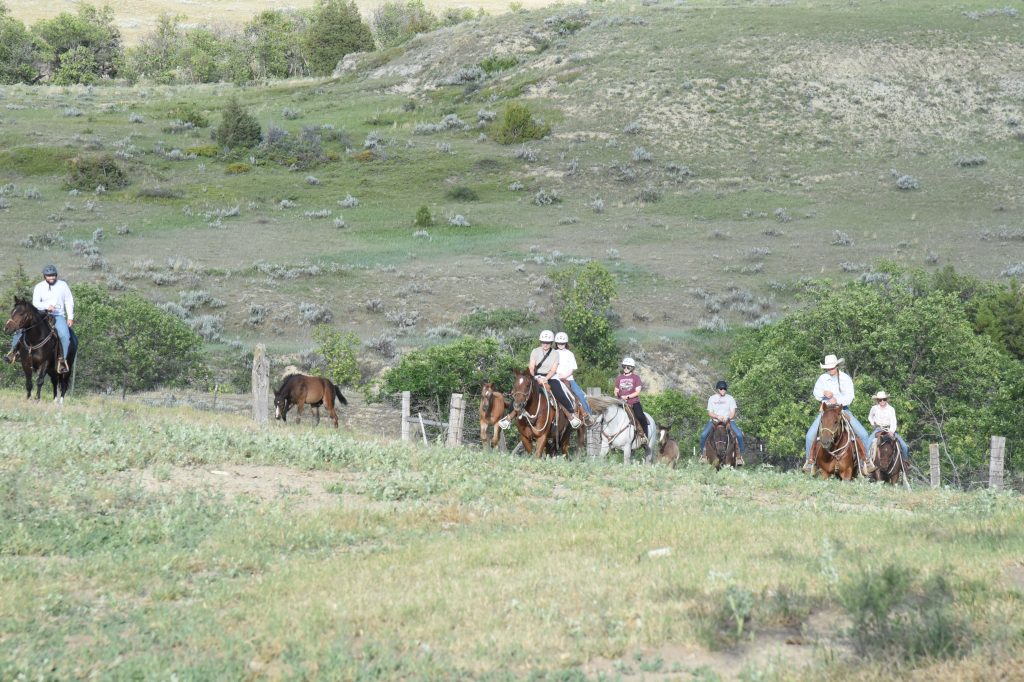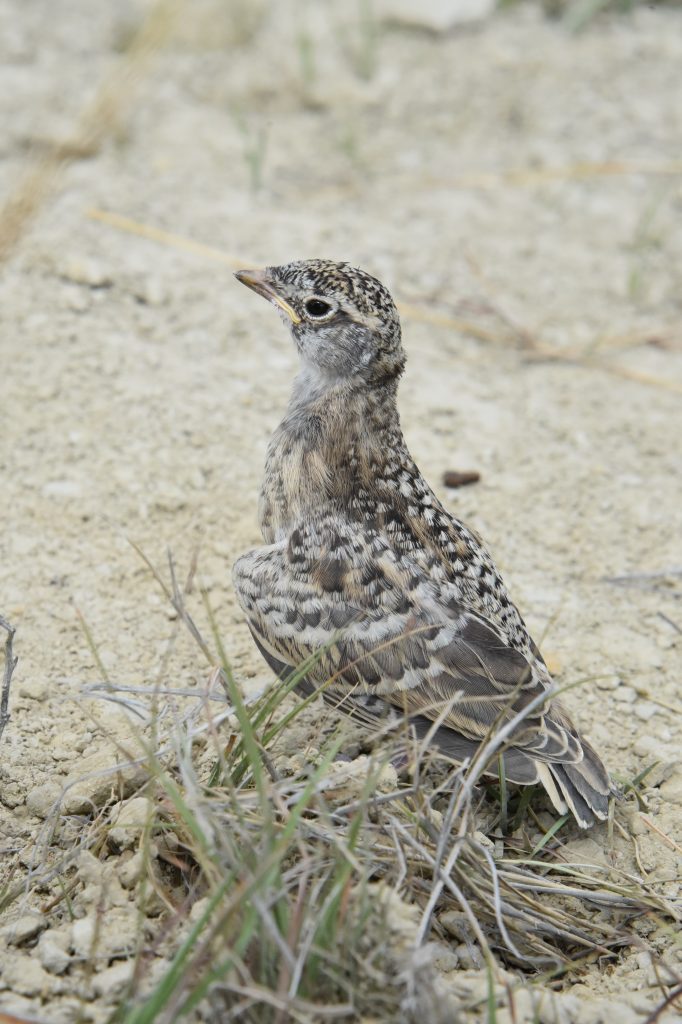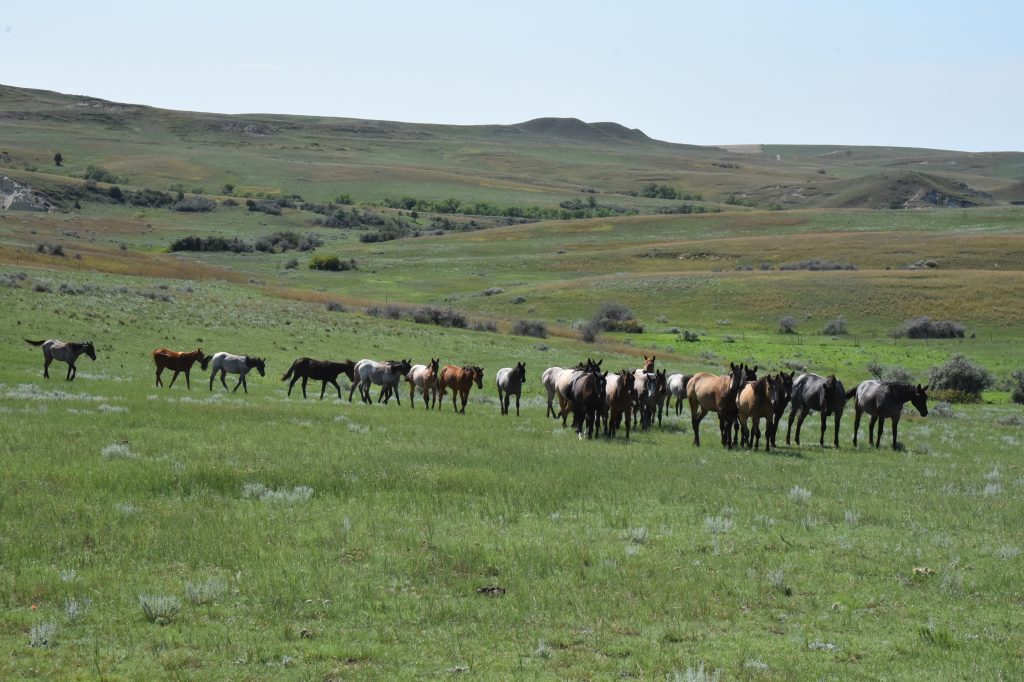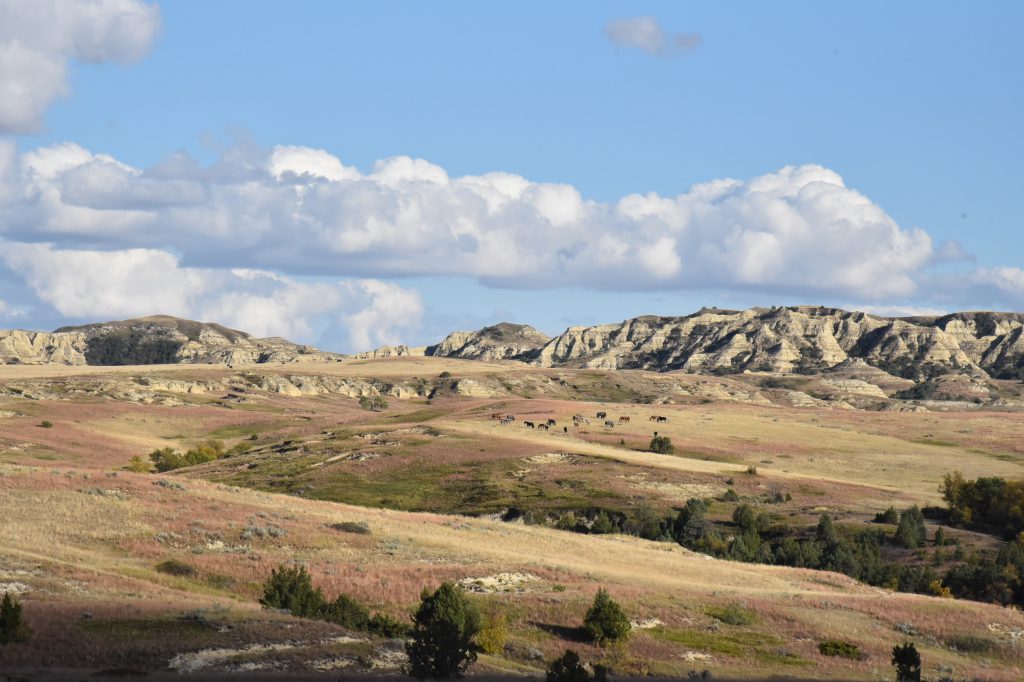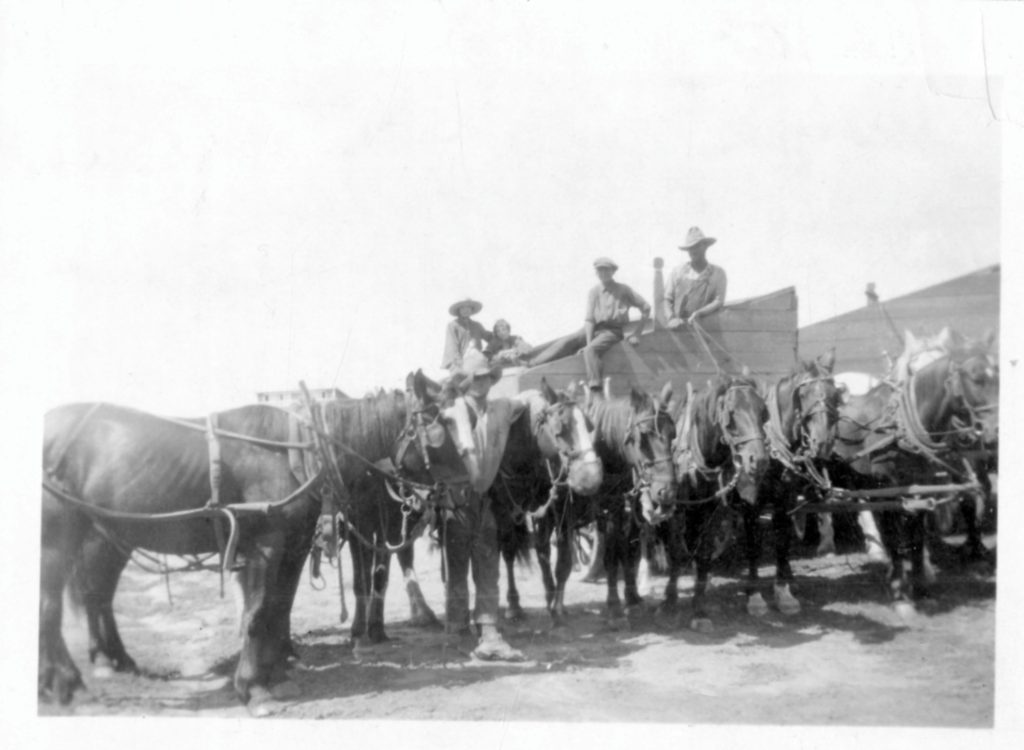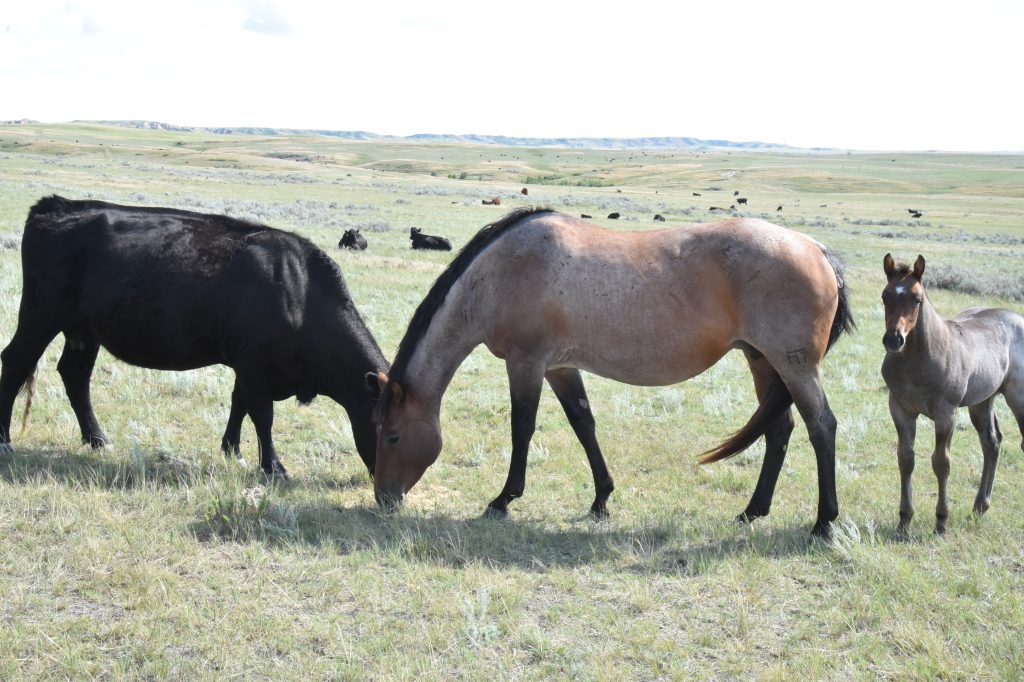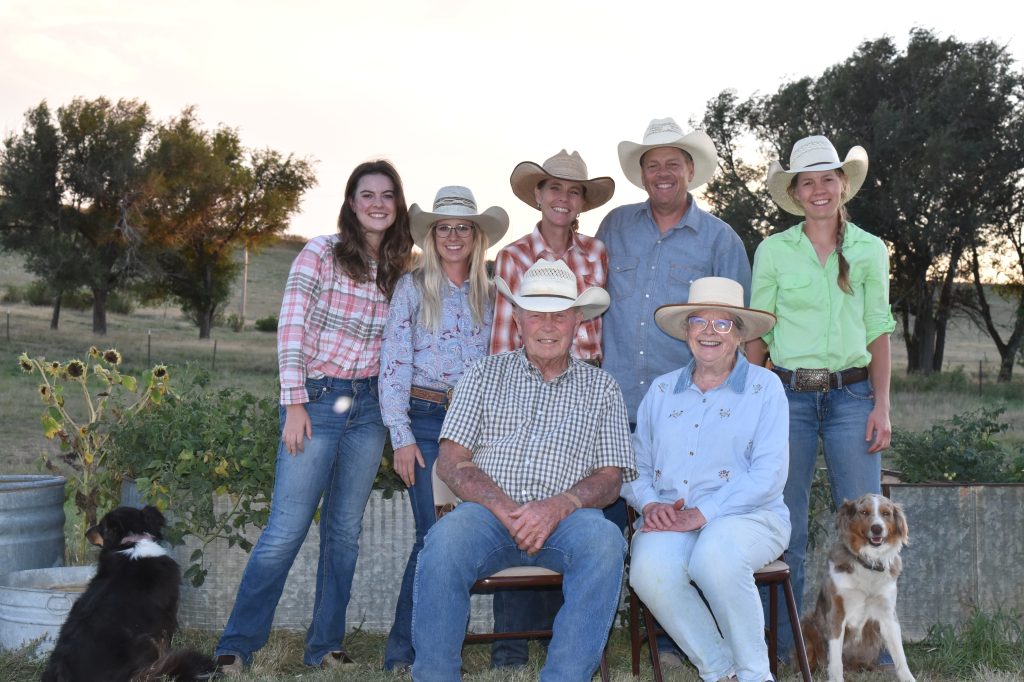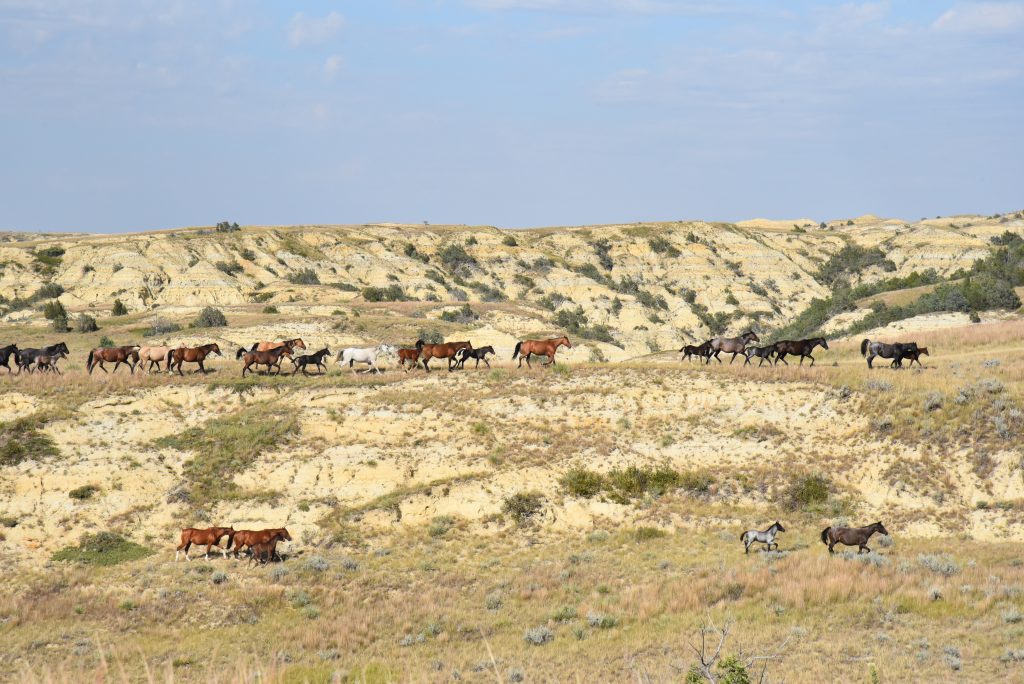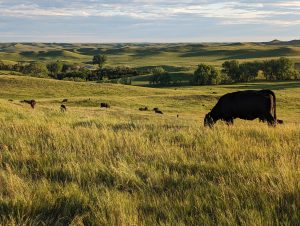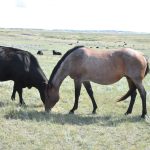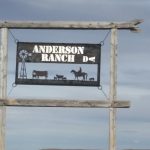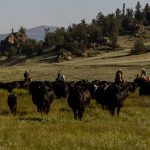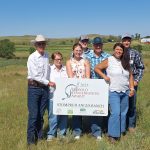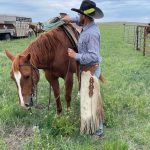Fall Cattle Journal 2025 | Mahlstedt Ranch: Diversified with design
Mahlstedt Ranch focuses on agritourism, sustainability
Making a living in agriculture can be hard, but Tana Canen and her family, who own Mahlstedt Ranch near Circle, Montana, operate on principles of faith and building a future secure in knowing they are living their passion – and sharing it with others.
The Mahlstedt Ranch, 20 sections of rugged beauty in the badlands of Eastern Montana between Circle and Glendive, was homesteaded in 1912 by John and Mary Mahlstedt, Canen’s great-grandparents. Her parents, George and Jeanie Mahlstedt, have run the ranch since George was in his 30s. Today George is in his 80s and is still an integral part of the operation, along with Canen, her husband Ross, who serves as sheriff of Dawson County, and their three daughters – Tienna, Alexis and Corinne Canen. The ranch consists of a Salers/Angus cow-calf base and 40 head of brood mares and a handful of stallions, along with its most recent venture over the past several years – agritourism.
Canen drives the 45 miles to the ranch on a regular basis. Her passion for the way of life she grew up knowing makes the drive a small part of the challenges – but even bigger blessings – of making a living raising cattle and marketing high quality quarter horses. The family also enjoys sharing their passion with others through the guest ranch cabin rental, a wedding venue, paid ranch experiences like horseback riding and branding, serving as a Harvest Host site, selling ranch-raised beef, and offering big game and upland bird hunts.
After completing four-year college degrees, Tienna and Alexis now call the ranch home. Tienna spends summers there and winters in Arizona, training horses, and Alexis handles many of the day-to-day operations. Corinne is a junior in college at Montana State University majoring in English.
“The two oldest have left and now returned and become an integral part of our operation,” said Tana. “They embody the example of the younger generation with new ideas. I have been looking at things the same for 50 years, and one of them will say, ‘How about we do it this way?’ and I think, ‘Why didn’t I think of that,'” she said. “They bring fresh perspectives to the operation and keep us moving forward.”
The Canens’ and Mahlstedts’ focus on sustainability started seven years ago when Tienna attended a Ranching for Profit young producers event, after seeing it advertised in the Tri-State Livestock News. “We have gone through eight years of drought, with grasshoppers most of those years, and had to drastically reduce our cowherd numbers. We also had the opportunity to purchase the neighboring ranch, but to make it all work, we had to look at new ways of doing things,” said Canen.
With new ideas and new networks of people the girls have each developed, new practices have been brought home, including fall calving a small group of cows, retaining ownership to feed cattle through a natural beef cooperative, reducing commodity crop, planting cover crops, grazing longer, and implementing a water project that added a new well, pipeline, a holding cistern, and 11 tanks that are gravity-fed. “My Dad had drawn the basics of the water improvements back in the ’70s, and Alexis spearheaded the execution of it in ’23 and ’24,” said Canen.
Last winter they grazed a cover crop into January until snow got too deep, in a pasture with a new water tank where they couldn’t keep the cattle before because they had to travel too far to water.
“A lot of ranchers say they raise grass and use the cattle as tools to manage the grass,” said Canen. “We understand that principle, but yet, we still say our animals are our priority, and we make sure our cows and horses are well taken care of and are well fed, along with the wildlife. They are our focus.”
Canen said the horses are really her forte. “They are what I love and what I spend the most time on,” she said. The family has raised registered Quarter Horses for over 60 years and market foals year around. “We love our horses and we try and do as much as we can horseback,” she said. Tienna has her WPRA card and runs barrels, and Alexis ropes and barrel races. The changes they implement are with the goal of moving operations from farming and maintenance of heavy equipment, to more time with the horses. “Alexis jokes that ‘Our tractors are more broke than our horses,'” said Canen, “so we are trying to do more grazing and less haying – which we feel is more regenerative, but also gives us the benefit of doing more of what we love.”
Canen said the underlying goal of living and working together as a family is what drives them to make the changes and build a future for everyone. The added agritourism ventures fall mostly into Canen’s wheelhouse, but the entire family has seen the opportunity and realizes the diversity is needed. “My dad has always preached that we need to be diversified, but the shape of that diversity has changed. Today, instead of a wheat crop in the bin, it’s agritourism,” said Canen, noting everyone has an area where they excel.
“Tienna is good with people, she has a lot of experience with trail rides and is whizbang at that. Alexis also helps with the guests but is more introverted and happy to be with just her cows, dogs, and her horses. Her specialty is making the video reels for social media promotion and telling our story across the world. Corinne is great with people, loves the horses and is the best at teaching. When we have young kids who want to do riding lessons, she is the natural at that,” said Canen.
“My dad is the anchor of the family, and has always worked to have the family together,” Canen said, He’s also always had an eye for conformation of animals and was on the livestock judging team at Montana State University in his college years. “Because of his breeding decisions, our cattle are well built, have eye appeal, good feet and bone and can make it in the badlands. Our horses are the same, and that’s been established thanks to my dad over decades and decades.”
Her mom, Jeanie, has fed the crew for decades and has always been the feminine aspect of the ranch, said Canen. Although she didn’t grow up on a ranch, “she raised us to appreciate the beauty of where we live and has always maintained a beautiful yard and a big garden.”
Todd Barkely is a fourth-generation rancher from Baker, Montana, who has worked with Canen on agritourism boards. He and his wife Molly have a passion for creating sustainable options in production agriculture, not just in their own family, but others as well. They sell ranch-raised beef and pork and also built a year-around geothermal greenhouse and sell fresh vegetables, with future plans for citrus production – unheard of in Eastern Montana. Barkley said in the time he has known Canen he has been impressed how she is a true “ag-vocate” in everything she does. She works to find new ways of doing things that allow her family to live and work together.
“It’s important to Tana to keep her family close, and in order to do that they had to branch out and create other enterprise units. They had to try new things, like agritourism, but also have the tenacity to stay with established ventures, like their renowned horse breeding program,” he said.
Two things that stand out to Barkley are the faith and hard work of Tana and her family. “Their faith in God and their willingness to share that with others is really a guiding beacon to them. They are proud of their place and their heritage, and also the fact that she and her girls are out there doing the day-to-day work in what is typically a ‘man’s world,’ and they are getting it done, all with the support and encouragement of the previous generation,” he said.
Barkley noted that when he was invited to coyote hunt on their ranch he was impressed with the diversity of wildlife. “I always steal the line, ‘If you build it they will come,’ and that is so true with ranches that have implemented sustainable ag practices like no-till, cover cropping and stockpiled grazing. I can always tell right away when I go on places that are using regenerative practices – you can see the diversity of wildlife, like fox, turkey, pheasants, grouse, deer … we saw it all there. It’s a telltale sign of the health of the land.”
Canen and her family know daily the struggles of forging ahead in ranching yet live every day knowing they are living out their dream and fulfilling a calling to share their story with others. With less than two percent of the population feeding the world, they feel led to be agvocates and let people see, feel, smell and experience what they love, so they can appreciate it and become friends of agriculture.
“We love this lifestyle so much; it’s in our blood,” Canen said. “To live in Eastern Montana, the people and the animals have to be tough and enduring. It’s what we love and we’re passionate about it. It’s what God’s called us to – we are doing what we are supposed to be doing.”

